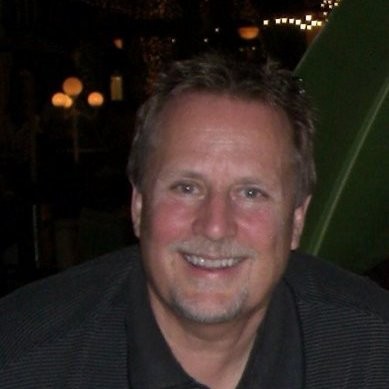Blog
Why Sleep When You Can Drink Coffee?
By Craig Jensen | October 22, 2015
As I am sitting in my office trying hard to not fall asleep, I am realizing I didn't get enough sleep last night. If you are like me (and 82% of adults nationwide), you probably drink many cups of coffee every morning. It not only feels like a great way to wake up but also seems to help create an energy boost after not sleeping enough the night before.
I am always interested in learning, so I've looked into the effects of both coffee and sleep on the body and the brain, specifically. It's fascinating-in my opinion-how coffee and sleep can impact your ability to learn. I'll start with coffee, and if you don't want to know the fascinating stuff, just read the next sentence then go pour yourself a cup.

Most of us know that caffeine is a stimulant but few likely know how drinking a cup actually affects us, other than making us feel more alert. Coffee (caffeine) doesn't really provide a boost of new energy. It actually tricks our brain into thinking that we aren't running out of the energy that we already have. This is because, to the brain, caffeine looks just like the chemical adenosine, which is naturally released over the course of a day. Adenosine is largely what is responsible for causing us to become sleepy because as it builds up over the day and binds to receptors in the brain, it slows down nerve cell activity, causing you to progressively feel the need to sleep and recuperate.
However, because caffeine looks like adenosine to the brain, when it is ingested, it binds to these receptors and blocks the adenosine from doing so. Because caffeine doesn't have the same "slowing" effect as adenosine, your brain doesn't register that it's time for sleep. Because of this effect, you become less drowsy and your brain is able to fire neurons at a higher pace and continue working at a better efficiency. The problem with this is that we "crash" later in the day because all of the built up adenosine that has been blocked can finally rush to the receptors, overloading them and bringing a feeling of extreme drowsiness. In addition to its ability to "block" sleepiness, caffeine also helps produce adrenaline, which makes the heart beat faster and increases blood flow. And, some recent studies seem to indicate that if you consume coffee right after learning something new, there is a better chance you will be able to remember it the next day.
ZZZZZZZZZZZZZZZZZZZZZZZZZZZZZZZZZZZZZ, above was a real snoozer, huh? Of course, "everything in moderation:" scientists say that up to 400 mg of caffeine is ok on a daily basis, but anything more could become excessive. That's the equivalent of about 4-5 cups of coffee, 10 cans of caffeinated pop, or two energy drink shots, depending on the strength of each drink. One downside is that if you drink coffee (caffeine) consistently, your body will build up a "tolerance" (this is actually your brain adding more adenosine receptors that the caffeine can bind to) and thus will require more of it to achieve the same effect.
The easiest way to limit this is to be mindful; try to limit your caffeine intake when possible so that when you do need that boost, you won't have to take in an unhealthy amount of caffeine. So, is coffee a sufficient replacement/solution for not sleeping enough? And does it impact learning?
Stay tuned,
Craig
Craig Jensen
Craig Jensen is the President and CEO of LearnNowOnline. Craig has led the company’s change from instructor-led classroom training, to self-study CD/DVD training, to the award winning online learning solutions offered today. Craig is passionate about helping individuals and businesses of all sizes solve their problems through practical learning and technology. He is involved in setting direction for the company, including selecting training content for development with resources to support all learning styles. He is also involved in The CEO Roundtable organization in the Twin Cities as well as the Minnesota High Tech organization. In his spare time, Craig loves to travel, golf, and partake in water sports of all kinds.



